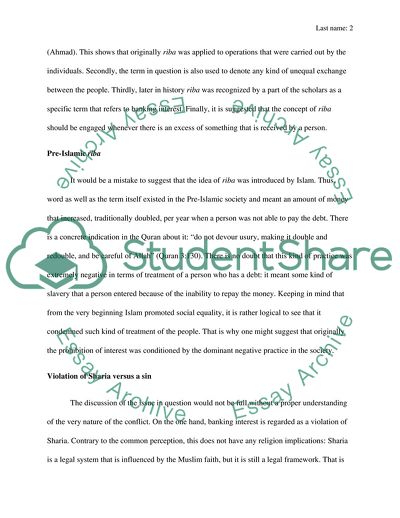Cite this document
(The Prohibition of Interest as an Important Part of the Muslim Tradition Essay Example | Topics and Well Written Essays - 1250 words, n.d.)
The Prohibition of Interest as an Important Part of the Muslim Tradition Essay Example | Topics and Well Written Essays - 1250 words. https://studentshare.org/religion-and-theology/1878461-final-paper-of-christian-muslim-dialogue
The Prohibition of Interest as an Important Part of the Muslim Tradition Essay Example | Topics and Well Written Essays - 1250 words. https://studentshare.org/religion-and-theology/1878461-final-paper-of-christian-muslim-dialogue
(The Prohibition of Interest As an Important Part of the Muslim Tradition Essay Example | Topics and Well Written Essays - 1250 Words)
The Prohibition of Interest As an Important Part of the Muslim Tradition Essay Example | Topics and Well Written Essays - 1250 Words. https://studentshare.org/religion-and-theology/1878461-final-paper-of-christian-muslim-dialogue.
The Prohibition of Interest As an Important Part of the Muslim Tradition Essay Example | Topics and Well Written Essays - 1250 Words. https://studentshare.org/religion-and-theology/1878461-final-paper-of-christian-muslim-dialogue.
“The Prohibition of Interest As an Important Part of the Muslim Tradition Essay Example | Topics and Well Written Essays - 1250 Words”. https://studentshare.org/religion-and-theology/1878461-final-paper-of-christian-muslim-dialogue.


